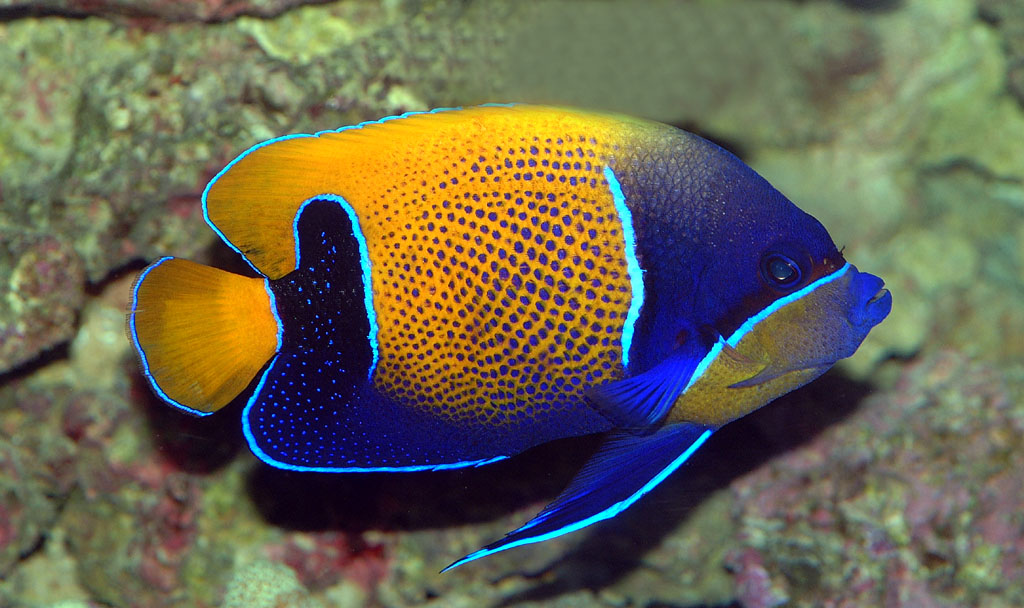Hello friends
With great enthusiasm, let’s explore interesting topics related to The Majestic Angelfish: Marine Fish with a Touch of Mythology. Come on take a good look at the following information so that our insight increases and opens our minds further.
The Majestic Angelfish: Marine Fish with a Touch of Mythology

In the vast and vibrant world of marine fish, there are few species as captivating and awe-inspiring as the angelfish. These majestic creatures have been a favorite among aquarium hobbyists and marine life enthusiasts for centuries, and it’s easy to see why. With their striking colors, elegant fins, and ethereal beauty, angelfish are a true marvel of nature.
History and Biology
The angelfish family (Pomacanthidae) is a large and diverse group of marine fish that comprises over 80 species. These fish are found in tropical and subtropical waters around the world, from the coral reefs of the Indo-Pacific to the coastlines of the Americas. Angelfish are particularly abundant in the Caribbean and the Red Sea, where they can be found in coral reefs, seagrass beds, and estuaries.
Angelfish are characterized by their distinctive appearance, which includes a long, pointed snout, large eyes, and fins that are often long and flowing. They come in a wide range of colors, from the bright blues and yellows of the popular Regal Angelfish (Pygoplites diacanthus) to the mottled browns and greens of the smaller species.
Behavior and Habitat
In their natural habitat, angelfish are often found in pairs or small groups, swimming close to the coral reef or floating near the surface of the water. They are opportunistic feeders, eating a variety of small invertebrates, plankton, and algae. Some species of angelfish are known to be herbivores, feeding on seaweed and other plant material.
Angelfish are social fish that thrive in the company of others, but they can also be kept in solitary confinement in a well-designed aquarium. However, it’s essential to provide them with plenty of hiding places, swimming space, and visual stimulation to keep them healthy and happy.
Care and Maintenance in an Aquarium
Keeping angelfish in an aquarium can be a challenging but rewarding experience. These fish are generally hardy and can tolerate a range of water conditions, but they do require some special care.
Aquarium Size and Filtration: Angelfish are large fish that require a spacious aquarium with plenty of room to swim. A minimum tank size of 125 gallons (475 liters) is recommended, but larger tanks are always better. A good filtration system is also essential to maintain clean and healthy water conditions.

Water Conditions: Angelfish are sensitive to changes in water temperature, pH, and salinity, so it’s essential to monitor and maintain stable water conditions. A temperature range of 72-82°F (22-28°C) and a pH range of 8.1-8.3 are ideal for most species of angelfish.
Diet and Nutrition: Angelfish are carnivores and require a varied diet that includes meaty foods such as frozen or live brine shrimp, mysis shrimp, and plankton. They also need access to live rocks or seaweed to graze on algae and other plant material.
Social Interaction: Angelfish are social fish that thrive in the company of others, so it’s essential to keep them in pairs or small groups. Avoid keeping them with aggressive or territorial fish, as they can become stressed and develop health problems.
Diseases and Health Issues
Marine Ich: A protozoan parasite that causes white spots to appear on the fish’s skin and fins.
Viral Disease: A highly contagious disease that causes a range of symptoms, including loss of appetite, lethargy, and labored breathing.
Fin Rot: A bacterial disease that causes damage to the fish’s fins, leading to fin loss and infection.
Health Issues: Angelfish are also prone to a range of health issues, including:
Malnutrition: A lack of essential nutrients can lead to a range of health problems, including stunted growth, skin lesions, and poor immune function.
Stress: Stress caused by poor water conditions, overcrowding, or handling can lead to a range of health problems, including disease and parasites.
Health Tips
To keep your angelfish healthy and thriving, it’s essential to:
Maintain clean and stable water conditions.
Feed a varied diet that includes meaty foods and live rocks or seaweed.
Monitor and manage stress levels.
Regularly inspect your fish for signs of disease or parasites.
Seek professional advice from a qualified aquarist or veterinarian if you notice any health problems.
Breeding and Reproduction
Closing
Thus, we hope this article can provide you with valuable insight into The Majestic Angelfish: Marine Fish with a Touch of Mythology. We also thank you very much for the time you have taken to read this article. Don’t forget to visit this simple blog again to read other articles about unique, cool and extraordinary information. May you all always be given: A blessed age, Physical and spiritual health, and smooth sustenance, amen.